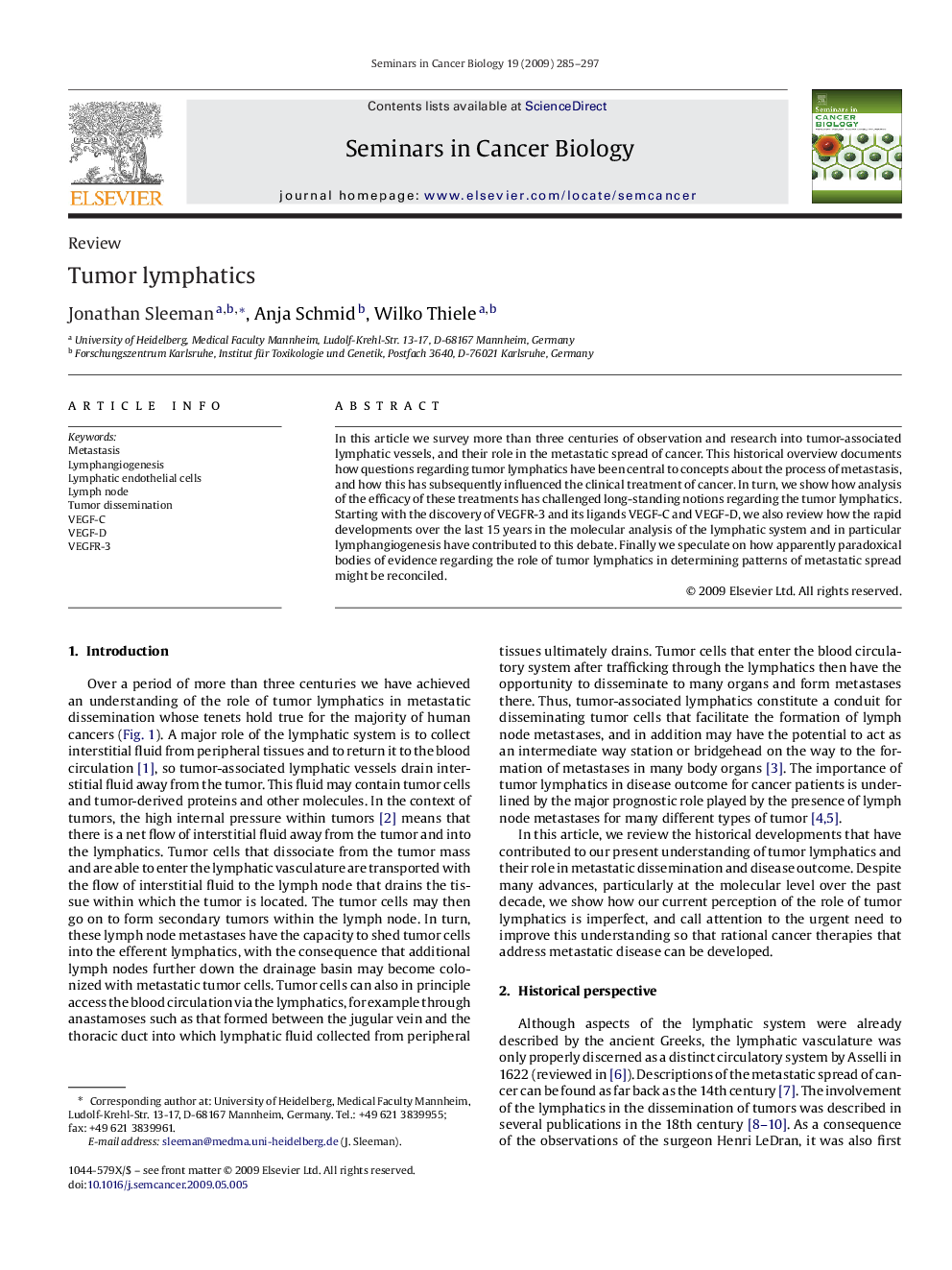| Article ID | Journal | Published Year | Pages | File Type |
|---|---|---|---|---|
| 2023979 | Seminars in Cancer Biology | 2009 | 13 Pages |
In this article we survey more than three centuries of observation and research into tumor-associated lymphatic vessels, and their role in the metastatic spread of cancer. This historical overview documents how questions regarding tumor lymphatics have been central to concepts about the process of metastasis, and how this has subsequently influenced the clinical treatment of cancer. In turn, we show how analysis of the efficacy of these treatments has challenged long-standing notions regarding the tumor lymphatics. Starting with the discovery of VEGFR-3 and its ligands VEGF-C and VEGF-D, we also review how the rapid developments over the last 15 years in the molecular analysis of the lymphatic system and in particular lymphangiogenesis have contributed to this debate. Finally we speculate on how apparently paradoxical bodies of evidence regarding the role of tumor lymphatics in determining patterns of metastatic spread might be reconciled.
